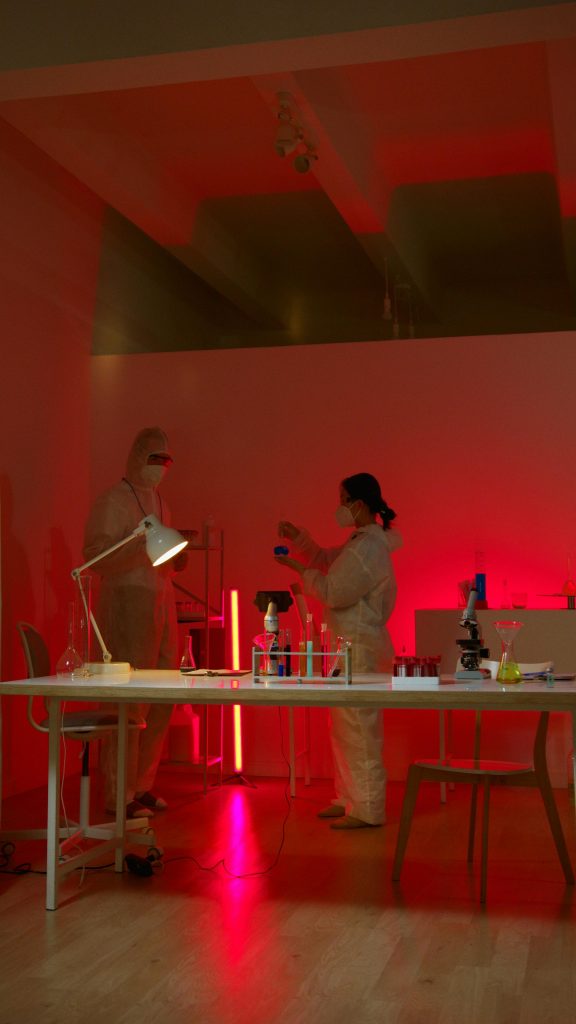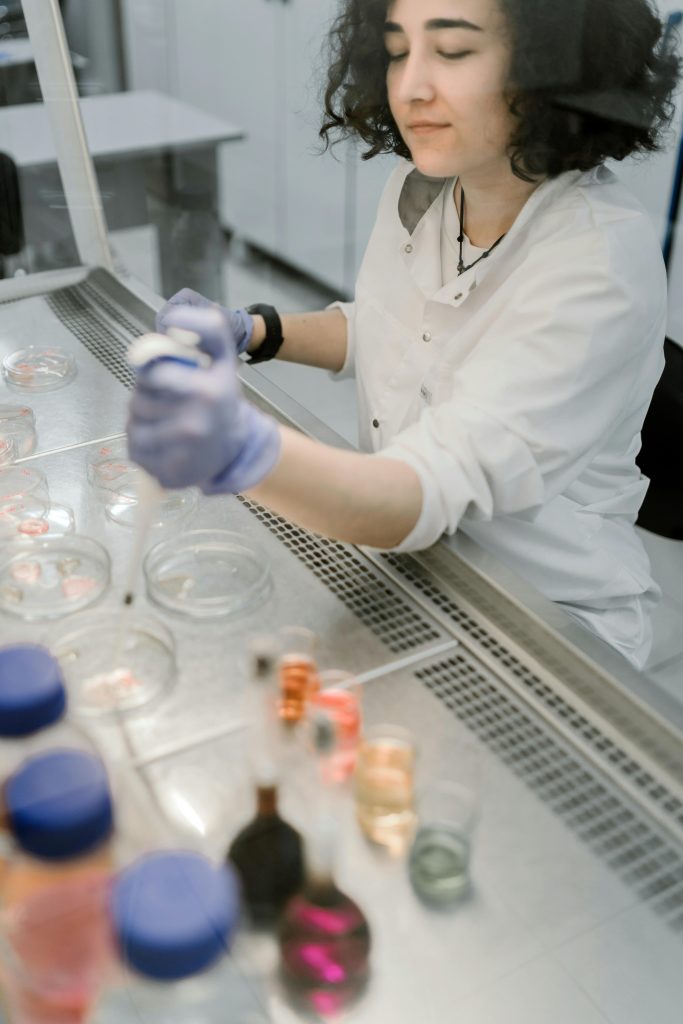A Lifeline for Researchers: NAWA Poland Researchers at Risk Programme Grant 2025

In a world where conflict, persecution, and instability can tragically disrupt the lives and careers of researchers, the NAWA (Polish National Agency for Academic Exchange) Poland Researchers at Risk Programme Grant 2025 offers a beacon of hope. Applications are now open for this crucial initiative, providing a vital opportunity for scientists at risk to continue their invaluable work in safety and security within Poland’s academic and research landscape.
This fully-funded programme is specifically designed to support researchers who have been forced to leave their home countries due to threats stemming from war, political unrest, discrimination, or other severe circumstances. By offering a stable and supportive environment, NAWA aims to ensure that the groundbreaking research of these scientists can continue to flourish, contributing to global knowledge and innovation.
What Does the NAWA Researchers at Risk Programme Offer?
This grant provides comprehensive support to both the at-risk researcher and the Polish host institution:
- Full-time Employment: Successful researchers will be offered a full-time employment contract at a Polish university or research institute for a duration of 24 months.
- Generous Salary: The programme covers the researcher’s salary, up to PLN 408,000 gross (including employer costs) for the entire 24-month period.
- Mentorship and Support: The supervising “Inviting Person” at the host institution will receive up to PLN 28,800 to provide dedicated support, mentoring, and guidance to the researcher, facilitating their integration into the Polish academic environment.
- Access to Polish Academia: Researchers will gain access to Poland’s extensive academic and research networks, opening doors for collaboration, knowledge exchange, and potential teaching opportunities.
- Flexibility in Research Activities: The grant supports a range of scientific activities, including:
- Research and development projects
- Gathering materials for publications
- Postdoctoral internships
- Academic work, including limited teaching1 responsibilities
Who is Eligible?
This programme is specifically for researchers who:
- Hold a doctoral degree (no nostrification, or formal recognition of foreign qualifications, is required).
- Have been granted international protection status by the Polish Office for Foreigners (i.e., refugee status or subsidiary protection) and possess a valid Residence Card.
- Are facing demonstrable risks in their country of origin due to persecution, armed conflict, discrimination, or natural disasters.
- Are committed to continuing their scientific careers at Polish academic or research institutions.
- Can present a project plan that aligns with their career goals and contributes to their scientific development.
- Can provide documents confirming their doctoral qualifications, translated into English or Polish.

How Can Host Institutions Apply?
Applications must be submitted by eligible Polish academic or research institutions on behalf of the at-risk researchers they wish to host. Each application must also designate an Inviting Person who will be responsible for the researcher’s mentorship and integration.
The application process is conducted online through the NAWA ICT System (https://nawa.gov.pl/en/scientists/researchers-at-risk/about-the-programme). The main content of the application must be in Polish, although scientific sections can be submitted in either Polish or English.
Key Dates:
The application window is open now and operates on a rolling basis until December 15, 2025, at 3:00 p.m. Warsaw time.
- Applications can be submitted continuously from April 11, 2025, to December 15, 2025.
- Research projects funded under this grant must commence no later than April 1, 2026.
- Host institutions are advised to apply at least 3 months before the planned start date of the research project.
A Commitment to Scientific Freedom and Solidarity:
The NAWA Poland Researchers at Risk Programme Grant 2025 stands as a testament to Poland’s commitment to academic freedom, international solidarity, and the protection of intellectual potential in times of crisis.2 By providing a safe and supportive environment for researchers forced to flee their homes, this initiative not only offers a lifeline to individuals but also enriches the global scientific community.
If you are a researcher at risk meeting the eligibility criteria, or if you represent a Polish institution that can host such a researcher, we strongly encourage you to explore this vital opportunity. Your groundbreaking research deserves to continue, and Poland is ready to offer a helping hand.
Unlocking Discovery: Your Guide to Becoming a Researcher
The thrill of uncovering new knowledge, solving complex problems, and contributing to the advancement of our understanding – this is the allure of a career in research. If you’ve ever felt that spark of curiosity and a desire to delve deeper, becoming a researcher might be the path for you. But where do you begin? This blog will guide you through the essential steps to embark on this rewarding journey

1. Cultivate Your Curiosity and Passion:
At its core, research is driven by a deep-seated curiosity. Identify the subjects that truly fascinate you. What questions keep you up at night? What problems do you feel compelled to solve? This passion will fuel your dedication through the often-challenging research process.
2. Build a Strong Educational Foundation:
A solid education is paramount. The specific requirements will vary depending on your field of interest, but generally, the path looks something like this:
- Bachelor’s Degree: Obtain a bachelor’s degree in a relevant field. For aspiring scientists, this could be in biology, chemistry, physics, computer science, or a related discipline. Social science researchers might pursue degrees in sociology, economics, psychology, or political science. In Nigeria, aim for a strong performance in your chosen subject at a reputable university.
- Master’s Degree (Often Preferred): While some entry-level research positions might be available with a bachelor’s degree, a Master’s degree provides more specialized knowledge and research skills. It often involves conducting your own research project and writing a thesis. Consider pursuing a Master’s program in your area of focus at a Nigerian or international university.
- Doctorate (PhD) – Often Essential for Independent Research: For those aiming for independent research roles, leading research projects, and academic positions, a PhD is usually a necessity. This involves several years of intensive study, conducting original research, and writing a dissertation that contributes new knowledge to your field. Think about PhD programs both within Nigeria and abroad, keeping an eye on scholarship opportunities like the SISSA PhD Scholarship 2025 in Italy or the SWJTU Fully-funded Silk Road Scholarship 2025 in China, which are currently open for applications.
3. Develop Essential Research Skills:
Beyond academic qualifications, certain skills are crucial for effective research:
- Critical Thinking and Analytical Skills: The ability to evaluate information objectively, identify biases, analyze data, and draw logical conclusions is fundamental.
- Problem-Solving Skills: Research often involves encountering obstacles and finding creative solutions.
- Information Literacy: Knowing how to find, evaluate, and synthesize information from various sources is essential.
- Data Analysis Skills: Depending on your field, this could involve statistical analysis, qualitative data analysis, or computational methods.
- Communication Skills: Clearly and concisely communicating your research findings, both in writing and verbally, is vital for publications, presentations, and collaborations.
- Attention to Detail: Accuracy and precision are paramount in research.
- Organization and Time Management: Managing research projects effectively requires strong organizational and time management skills.
- Technical Proficiency: Familiarity with relevant software, tools, and equipment in your field is often necessary.
4. Gain Research Experience:
Practical experience is invaluable. Seek out opportunities to get involved in research projects:
- Undergraduate and Postgraduate Research: Actively participate in research projects led by your professors. Volunteer in labs or research groups at your university in Nigeria.
- Internships: Look for research internships in academic institutions, research organizations, or even relevant industries, both within Nigeria and internationally.
- Research Assistant Positions: After graduation, consider applying for research assistant roles to gain hands-on experience and learn from experienced researchers.
5. Build Your Professional Network:

Connect with other researchers in your field:
- Attend Conferences and Seminars: This allows you to learn about the latest research, present your work (when you have it), and meet other researchers. Look for conferences in Nigeria and consider virtual international conferences.
- Join Professional Organizations: These organizations often offer networking opportunities, resources, and career support.
- Connect Online: Utilize platforms like LinkedIn to connect with researchers globally.
6. Stay Curious and Persistent:
Research is often a long and winding road with its share of setbacks. Maintain your curiosity, be persistent in your pursuit of knowledge, and learn from both successes and failures.
Opportunities to Consider:
For researchers in Nigeria looking for opportunities, keep an eye on programs like the NAWA Poland Researchers at Risk Programme Grant 2025, which supports researchers facing difficult circumstances. While it has specific eligibility criteria, it highlights the global efforts to support the research community. Also, explore research grants and collaborations within Nigerian universities and research institutions.
Your Journey Begins Now:
Becoming a researcher is a challenging but incredibly rewarding path. By building a strong educational foundation, developing essential skills, gaining practical experience, and staying persistent in your pursuit of knowledge, you can unlock your potential to contribute to the world of discovery, right from Nigeria and beyond. Start exploring, start asking questions, and take that first step towards a career in research today!